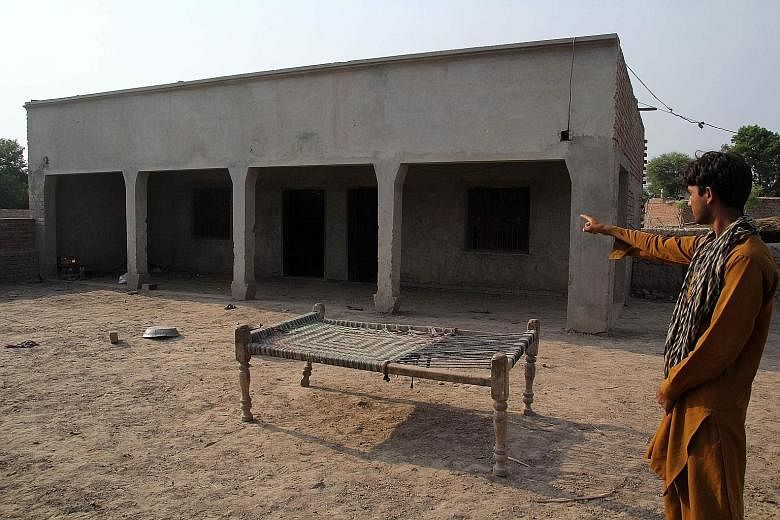RAJA RAM (Pakistan) • The rape of a teenage girl in revenge for a crime committed by her brother has left residents of Raja Ram in Punjab shaken and questioning a deeply entrenched system of village justice.
Last month, a council of village elders ordered the rape of the 16-year-old after her brother was accused of raping a 12-year-old girl.
The move highlights the role such councils, called panchayat or jirga, play in the lives of rural Pakistanis.
The councils have traditionally enjoyed broad support, thanks to their ability to offer immediate justice. Courts can take years to settle a criminal case, and as much as a decade to resolve a civil dispute.
But the move to allow a rape victim's brother to sexually assault another girl has unsettled Raja Ram, home to some 3,000 people.
"May God have mercy, it was such a strange day and it was such a big injustice," said villager Amina Bibi.
"In our area, there is neither a school nor a hospital, and poverty and ignorance rule here... This incident is a mark of this ignorance," said 46-year-old Imtiaz Matila.
The girls have been taken to a women's shelter in conservative Multan, Pakistan's fifth-largest city.
Raja Ram is just a few kilometres down the road, but feels a world away from urban life.
Men sit around on charpoys, sheltering from the blistering heat, while women are conspicuous only by their absence, shielded from view behind the rough stone walls that surround each of the crudely built, single-storey houses.
Punjab is also home to a prominent advocate of women's rights - Ms Mukhtar Mai, whose own tale sheds light on jirga justice and its brutal treatment of women.
In 2002, a jirga ordered Ms Mai to be gang-raped after her brother was falsely accused of rape. She made the unusual decision to defy her rapists and take them to court.
In an infamous miscarriage of justice, her attackers walked free, and people continued to rely on panchayats. She went on to become a high-profile activist.
"It's an honour-based system, and there's nothing more dishonourable than the rape of a woman in your family," explained women's rights activist Aisha Sarwari.
The men of the aggressor's family must be shamed through the loss of their women's dignity, she said.
"That's the balance of power in these communities, which makes sure that women are some kind of collateral," she said.
The Supreme Court, trying to bring jirgas to heel, declared them illegal in 2006.
However, in an apparent backtrack this year aimed at unclogging the slow-moving court system, the government passed a law that promotes village councils as an alternative solution for small civil disputes.
"There used to be wise people who made good panchayat decisions. They used to know the realities of the village... but now, these are the panchayat," said Mr Matila dismissively.
AGENCE FRANCE-PRESSE

